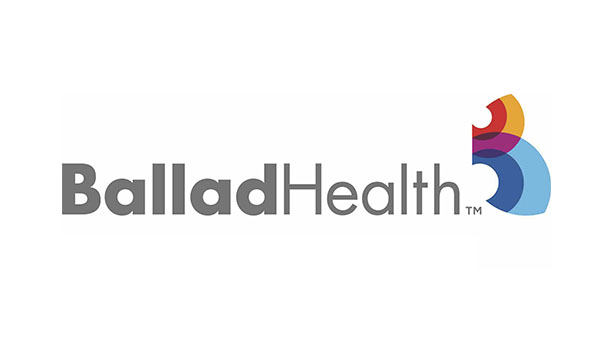Ballad Health today announced fourth-quarter and year-end results from its 2020 fiscal year, and that report illustrates the impact the COVID-19 pandemic has had on the healthcare provider. During the fourth quarter of the 2020 fiscal year, net patient revenue fell $139.1 million, a 26.8 percent decline from the same period during the previous year.
Some of those losses were mitigated by $82.5 million in incremental federal funding provided through the Coronavirus Aid, Relief and Economic Security (CARES) Act. In a press release announcing the financial results, Ballad presented a timeline of when and how the COVID-19 outbreak affected operations.

Ballad Health Chairman and CEO Alan Levine
On March 10, Ballad Health executed its disaster plan, which includes the activation of its Corporate Emergency Operations Center (CEOC) to coordinate efforts across the system and around the region to rapidly plan for, and execute, ongoing response to the issues resulting from the COVID-19 pandemic.
Beginning on or about March 17, Ballad Health began experiencing an organic and material slowing of elective procedures and diagnostic services. Effective March 23, Ballad Health complied with the federal and state guidance to cease all non-emergent, elective procedures. Beyond the deferral of these procedures and diagnostic testing, Ballad Health experienced a decline in other types of medical treatment similar in effect to that experienced by most health systems and physician organizations – physician practice, urgent care and other routine medical service visits declined precipitously.
Ballad Health’s decline in overall volume was accelerated due to the pandemic, with some recovery during the fourth quarter. Acute discharges in the quarter declined by 22.6 percent. Surgeries performed in the hospital setting decreased by 29.3 percent to 10,575 cases. Inpatient surgeries declined 26.9 percent, while outpatient surgeries declined 30.6 percent. Emergency department visits decreased by 34.7 percent.
For FY 2020, total revenues were $1.993 billion, compared to $2.104 billion during FY 2019. Ballad’s total expenses (prior to the incremental expense associated with the implementation of a new electronic medical record and the COVID-19 pandemic) totaled $2.031 billion, down slightly from $2.060 billion in FY 2019.
Aside from the impact of coronavirus disease 2019 (COVID-19), Ballad’s results reflected significant capital investments as well as a number of new initiatives.
During the fourth quarter, Ballad Health reported it has successfully deployed the first phase of a more than $200 million technology conversion, bringing more than 80 care sites live on the new Epic electronic health record platform. According to Epic, despite deploying the system during a global pandemic, Ballad Health’s successful conversion was among the best the electronic health record company’s staff had observed, with Ballad Health achieving 100 percent of the key performance indicators for success.
Also, Ballad Health reported that, as a health system approved under a Certificate of Public Advantage (COPA) in Tennessee and Letter Authorizing a Cooperative Agreement in Virginia, both the State of Tennessee and the Commonwealth of Virginia have found the advantages stemming from the creation of Ballad Health are evident and demonstrable.
“It is the Tennessee Department of Health’s determination that the Ballad Health COPA continues to provide a public advantage,” stated the Tennessee Department of Health in a recent finding, citing, among other things, improvements in a majority of quality measures. “We appreciate, perhaps at this time more than ever, the important role Ballad Health plays in helping TDH fulfill its mission: to protect, promote and improve the health and prosperity of people in Tennessee.”
The Virginia Department of Health agreed with the State of Tennessee’s findings, citing, among other benefits, Ballad Health’s increases in nursing salaries of more than $100 million over 10 years, “the implementation of multiple billing and charging policies to reduce the burden of health cost to the region’s residents,” Ballad Health’s engagement in cost-reducing value-based programs, a majority of quality measures that demonstrate improvement and the likely financial jeopardy of several rural hospitals in Virginia existing prior to the creation of Ballad Health.
The Commonwealth’s Department of Health further independently determined “the benefits of the Cooperative Agreement to-date, and likely to result in the future, continue to outweigh the disadvantages attributable to a reduction in competition” which existed between Ballad Health’s predecessor organizations, Wellmont Health System and Mountain States Health Alliance. The Virginia Department of Health also noted “Ballad Health is a driving force in the area-wide Accountable Care Community that has more than 250 member organizations and has chosen to focus on STRONG children and families in order to improve population health across the region.”
“Ballad Health is grateful for the hard work the State of Tennessee and Commonwealth of Virginia are doing to help health systems respond to the current pandemic, while at the same time working to ensure the creation of Ballad Health continues achieving the policy goals set by both state legislatures,” said Ballad Health Chairman and Chief Executive Officer Alan Levine. “Rural hospitals and health systems all over the nation continue to struggle, and Ballad Health, as a regional system, continues to work hard to provide high-quality care to a rural region that likely would have faced the same loss of hospitals and access other rural communities have faced.”
Levine reiterated that, despite the financial challenges presented by the pandemic, Ballad Health remains committed to reopening a previously closed hospital in Lee County, Virginia.
A fuller overview of Ballad Health’s fourth-quarter and year-end results can be found at www.balladhealth.org/news/fourth-quarter-and-year-end-results.




